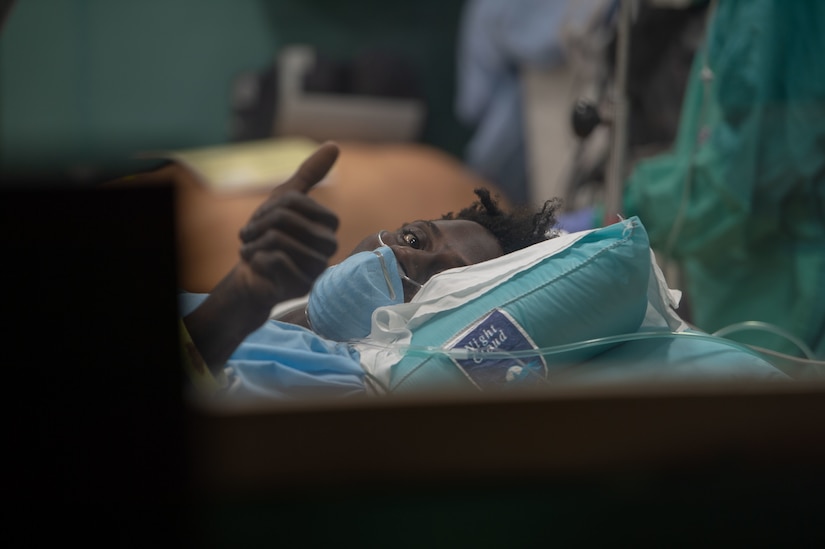April 29, 2020 | BY NAVY PETTY OFFICER 2ND CLASS ERWIN JACOB
MICIANO
After biking nearly 12 miles from Long Beach to Compton,
California, Joshua Davis was transported by paramedics to the Harbor-UCLA
Medical Center after being found stabbed with a sword.
Davis spent two days at the Harbor-UCLA Medical Center
before being transferred to the Navy hospital ship USNS Mercy to free up
hospital space for COVID-19 patients.
"I woke up here, and I don't even know how I got
here," Davis said, while bundled in white hospital sheets in his bunk bed.
Davis says he remembers everything up to the moment of being
stabbed, and then suddenly waking up in one of the 15 recovery wards aboard the
Mercy. He specifically recalls being in bed number 79. He went on to say that
after being stabbed, being alive and on a hospital ship from San Diego was the
last place he thought he would be.
"When we received him, he had already been treated for
his laceration from his right abdomen slashed through to his left side with his
intestines protruding," Navy Lt. Cmdr. (Dr.) Timothy Sehorn said.
"The other hospital was successful in stopping the bleeding, treating his
wound and saving his life."
Later, Sehorn and his team were able to identify and
recognize a smaller, but similarly deadly, incision to Davis' small intestine.
"When you leak from your colon, it creates a massive
amount of infection in your abdomen," Sehorn said. "Once that occurs,
there's a snowball effect and a rapid decline of health, making it
life-threatening."
After the new incisions were discovered, Davis underwent an
additional exploratory laparotomy procedure and has been recovering on the Mercy
for about four weeks. An exploratory laparotomy is a surgical operation where
the abdomen is opened and the abdominal organs examined for injury or disease.
“It used to hurt when I would yawn or lay down, but now I
feel like I can breathe better, which is helping me sleep, too," Davis
said.
During his time aboard, Davis has seen his fair share of the
ship: an operating room, an intensive care unit and an interventional radiology
suite.
The Mercy's wards aren't set up exactly like the hospital
rooms found ashore — there is no cable television or sunrise window views. The
ship's primary mission is to provide rapid, flexible, and mobile acute medical
and surgical services in support of service members deployed ashore, and naval
amphibious task forces and battle forces afloat.
To keep himself occupied, Davis spends most of his time
practicing his artistic abilities by sketching football players and pit bulls.
In an effort to make him more comfortable, hospital corpsmen have draped extra
bed sheets to help diffuse the light and give him extra privacy.
While he has been able to communicate with his family, they
haven't been able to come aboard the ship, so he has yet to see anyone since he
was admitted.
"It's been boring here, but I'm grateful for the people
who work here and who've been taking care of me," Davis said. He now
awaits approval from the Mercy providers to be discharged.
(Navy Petty Officer 2nd Class Erwin Jacob Miciano is
assigned to the U.S. 3rd Fleet.)









No comments:
Post a Comment